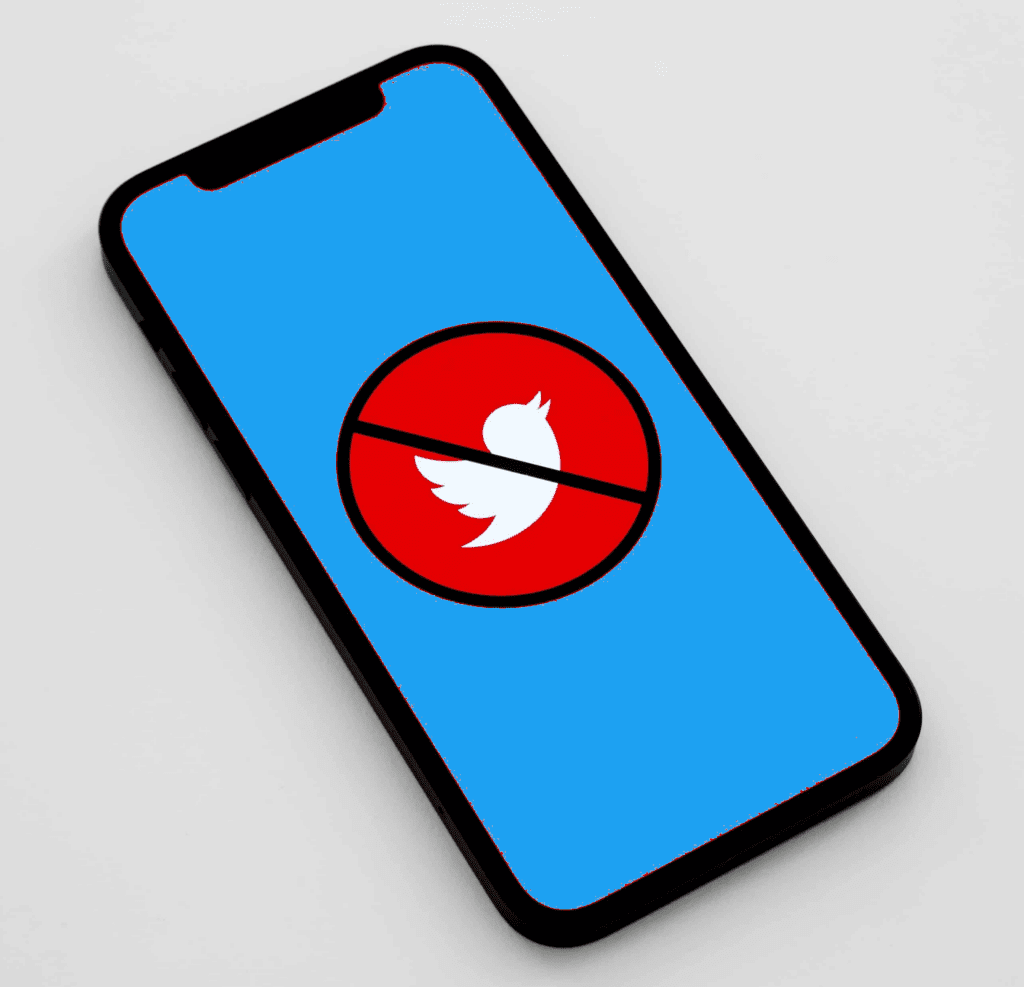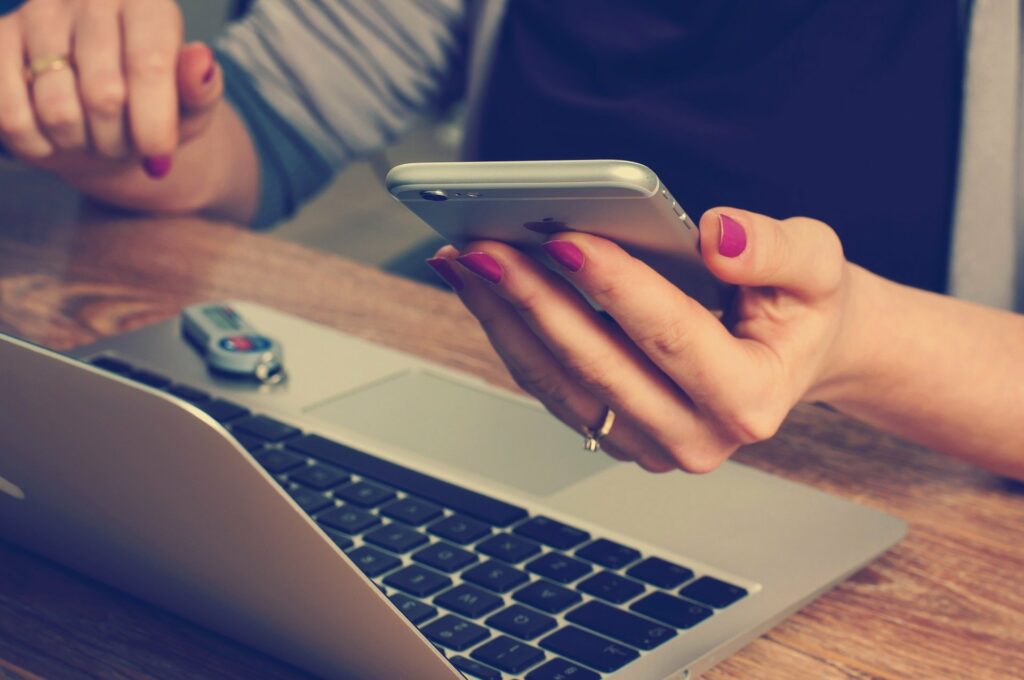Chronic stress has become a national epidemic, with more than half of Americans suffering from some form of stress. Inarguably, there’s not a single cause of this problem. But researchers have found that the role of modern technology is much greater in the growth of chronic stress than we thought.
In this post, we’ll discuss the types and causes of stress in the general population, along with some other important topics. You’ll also learn how to reduce your risk of developing these problems and preserve your wellbeing. So, let’s begin.
What is Stress?
Stress is your body’s reaction to change. When your body encounters something unfamiliar, it triggers a physical or an emotional response. Stress, in its natural form, is not a health problem. It’s a normal human reaction that happens to every single person on this planet.
As a matter of fact, you need the stress responses to survive. It tells your body how to react or when to remove yourself from a specific situation. The stress response also helps you adjust to unfamiliar environments.
If you look at it from a survival perspective, stress is highly positive. It keeps you motivated, alert, and ready to face or avoid a dangerous situation.
The problem arises when you don’t listen to your body telling you when to stop. That’s when it starts to work against you.
But the word “stress” isn’t self-explanatory. It doesn’t really describe the gravity of the problem. That’s why Hans Selye, the founder of “Stress Theory,” divided stress into three types.
Types of Stress
Since the “Stress Theory” became popular in the 1950s, psychological researchers have created several categories of stress to understand it better. All those categories are primarily based on Selye’s “three types of stress” concept. These are acute stress, episodic acute stress, and chronic stress. Let’s look at them individually.
Acute Stress
Acute stress is the most common of all forms of stress. It originates from the demands of your recent past or the pressures of your near future. If you experience acute stress in small doses, it’s somewhat thrilling, but too much of it can feel exhausting.
Think of doing an exciting physical task, like, say, cycling. You have fun riding a bike for some time, but it will become taxing and wearing if you have to ride it for hours.
Similarly, when you overdose on short-term stress, it leads to problems like tension headaches and psychological distress. Luckily, it’s extremely easy to recognize acute stress and its causes. You can just sit down for five minutes with a pen and a paper, and you’ll come up with an extensive list of what’s causing your stress.
Because of acute stress’ short lifespan, it doesn’t get much time to do severe damage to your physical and mental health, and you can easily get rid of it.
Episodic Acute Stress
Episodic acute stress happens when you leave acute stress untreated. Usually, people who suffer from episodic acute stress lead chaotic lives, and most things in their lives are not in order.
You may have seen people who are always in a rush but always late; people who take on significantly more than they can handle; and people who have little to no time for themselves. These are the type of people who are prone to episodic acute stress.
This kind of stress initiates from constant worry and the inability to see the world with an optimistic view. Individuals suffering from episodic acute stress often report symptoms like persistent tension headaches, hypertension, migraines, and chest pain. Normally, it doesn’t go away on its own. Treating episodic acute stress needs intervention on multiple levels, and enlisting the help of a professional is the best way to go about it.
Chronic Stress
Chronic stress is not at all thrilling. It eats the individual from the inside, destroying their mind, body, and life.
An individual develops chronic stress when they fail to see a way out of a miserable situation. The immense pressure of performing in society, at work, or at school can give birth to this problem.
The worst part about having chronic stress is that the individual gets used to it. When they ignore their body’s cries for help for a long time, they cease to even hear them. This can lead to problems like suicidal thoughts, violence, and heart strokes. Treating chronic stress requires extended behavioral as well as medical treatments along with stress management therapy sessions.
A 2011 research study linked cell phone overuse, which is common nowadays, to chronic stress in adults.
Technology: Good or Evil?
Our smartphones, tablets, internet applications, the streaming sites that we love, and the social media sites that we can’t live without—can you believe that we had none of these a mere twenty years ago? The advancement in technology has completely changed our lives. It has made us comfortable and it has bridged the distance between people. Technology has brought about many positive changes.
But what about the problems it causes to our physical and mental health? Let’s have a look at technology-induced problems and their sources.
Social Media & Stress
Social connections are mandatory. They help you grow and learn, and preserve your mental health. Today, social media sites play a crucial role in strengthening our social ties. But researchers say that the same social media is one of the primary causes of chronic stress in people. Why?
The Pew Research Center describes it as follows:
“Stress might come from maintaining a large network of Facebook friends, feeling jealous of their well-documented and well-appointed lives, the demands of replying to text messages, the addictive allure of photos of fantastic crafts on Pinterest, having to keep up with status updates on Twitter, and the “fear of missing out” on activities in the lives of friends and family.”
The American Psychological Association, in their Stress in America™ 2017 survey, also found that stress levels run higher in people who check their phones constantly for messages, mentions, and new posts. Social media overuse is not only linked with stress but also with problems like loneliness and depression.
Social Media-Induced Loneliness & Depression
While we can’t attain laboratory evidence of the link between social media use and mental health problems, we can learn a lot about it through epidemiological-style research. And that’s what psychologists have been doing for a long time.
Through epidemiological research, we have found evidence of a concrete relationship between prolonged social media use problems like loneliness and depression.
Undoubtedly, social media has brought us together, but at the same time, it has pushed us apart by taking physical connections away. And psychologists think that this lack of physical interaction is what’s driving a trend in these problems.
After Work-Hours Availability & Mental Health
Technology is significantly more accessible today than it was a few decades ago. And because everyone has access to high-speed internet, many companies expect their employees to stay digitally connected to work after business hours. Experts believe that this culture can prove detrimental to employees’ mental health.
A 2021 survey by ‘The Conversation’ found that people who tend to be available for work-related communications after hours are prone to psychological distress and emotional exhaustion.
They surveyed more than 2,200 participants, and 21% of them said that their superiors expected them to be available to attend calls, texts, and emails outside of their business hours.
When they compared this group’s mental health condition to a control group (a different group that doesn’t share the same characteristics as the experiment’s subjects), they found a significant difference. And on top of that, physical ailments like headaches and back pain were also evident in people who felt obligated to respond to their superiors after hours.
Lindley Cherry, MS, a clinical mental health counselor and consultant at C&C Betterworks, said that “when employees are expected to stay connected beyond work hours, they remain in a constant state of stress.”
When you’re constantly stressed and don’t allow yourself to return to a relaxed state, there’s a high chance that you’ll experience problems like insomnia, chronic fatigue, tension headaches, back and shoulder pain, memory problems, and depression.
Compulsive Tech Use & EMF Exposure
Regardless of whether you’re using social media, binging media content on your phone, or responding to a work email, you’re being exposed to massive EMF emissions from your gadget.
If you’ve been with us for a while, you’re familiar with EMF’s effects on human health. And if you don’t know about this, you can visit my “EMF Health Effects” page for more information.
Our environment today is densely EMF polluted. Everywhere we go, we’re showered by EMF radiation. When you use tech compulsively, you add a massive amount of EMF to your already polluted surroundings, further increasing your risk of developing EMF-induced health problems.
So, what’s the way out? Is there even one?
Yes, there is. And here’s how you can mitigate your risk of developing tech use-induced health problems.
Practice Digital Detox
Digital detox doesn’t mean quitting technology, as many people seem to think. It’s about abstaining from tech for a while and allowing your brain and body to connect with the real world.
There are many ways to do a digital detox. Here are a few examples.
Micro Detox: If you’re someone who can’t turn off their gadgets during the day, you can do a micro detox at the end of the day. At that time, you’ll refrain from using virtually any gadget and focus on real-life activities.
Social Media Detox: If social media is the thing that draws you back to your devices time and again, you can also try a social media detox. Rather than cutting out device use altogether, block or uninstall social media apps for a period of time. This can help to break addictive patterns and encourage real-world socializing.

Digital Detox Day: Pick a day of the week, preferably on the weekend, and go tech-free that day.
Digital Detox Vacation: This is probably the best way to go about doing a digital detox. There are services that allow you to go someplace with little to no tech availability and spend real time with yourself and nature.
Reduce Idle Moments
“It’s usually in your idle moments that you reach for your phone,” says Jamison Monroe, The founder, and CEO of Newport Academy.
Nowadays, we’re so addicted to our gadgets that spending even an hour without them makes us feel extremely bored. And this is not necessarily a problem with the individual because there’s a huge psychological factor at play here.
See, humans, for hundreds of years, have been busy throughout the day and rarely had the pleasure of sitting all day doing nothing. So, naturally, our bodies are also evolved to be continuously engaged.
When there were no smartphones around, people spent their free time socializing and doing creative things like writing and painting. We can do that too. The reason we don’t is that we’ve found an easier way of engaging ourselves—with smartphones.
You may be familiar with the concept of dopamine release. Whenever we achieve something, our brain releases a hormone called dopamine. This hormone is there to make us feel good about what we’ve achieved. And the brain needs that hormone, so it searches for different ways to get it. When it finds out that your cell phone is an easier way of getting dopamine release, our brains make us reach for our phones whenever we’re idle. You can read more on this in my post about technology addiction.
The good news is, it’s not impossible to control this.
There’s a whole concept in behavioral psychology called “delayed gratification.” This simply means that instead of searching for instant pleasure, like from your cell phone, you’ll do something that will better your life and give you immense pleasure in the long term. It can be focusing on your passion, taking time to build better relationships, learning a new language—just pick what appeals to you the most. Just be sure that the thing you pick is really the best way to spend your free time instead of mindlessly scrolling on your phone.
Unplug & Switch Off
Unplugging and switching off gadgets when not in use is one of the best habits you can incorporate into your life.
The first thing that happens when you unplug and switch off your electronic gadgets and electrical appliances is that you have zero EMF emissions from them. This significantly reduces the EMF pollution in your surroundings, which in turn reduces your risk of developing EMF-induced health problems.
Another benefit of making this a habit is that, after a while, you stop caring about using your gadgets compulsively. This is because unplugging and switching off forces you to find things that interest you and keep you engaged in the offline world.
Spend More Time in The Nature
With the availability of facilities ranging from entertainment to education and shopping trips to communication at our doorsteps, it’s like we’ve forgotten what’s it like to spend time outside. And because of that, we’re missing out on the dozens of benefits that we get from spending time in nature. These include better mental health, physical agility, essential vitamins, social interaction, and, yes, lower stress levels.
Spending time in nature doesn’t mean that you have to drop everything and go for a hike in the mountains. Simply visiting your local park every evening will also give you similar benefits. Just be sure not to take your phone while you go for a walk.
Final Thoughts
Technology overuse is linked to problems like chronic stress, depression, anxiety, and loneliness. And there’s no getting around that fact. But how it affects you personally depends entirely on the choices you make. This is why it’s important to build a healthier relationship with technology.
Join our brand-new show called “The Healthier Tech Podcast,” where experts from different disciplines share actionable tips on optimizing your relationship with technology. It’s available now on all major platforms.










